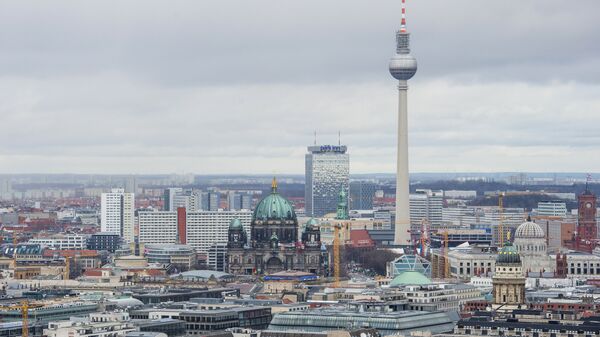Billboards reading Your country. Your Future. Now! with a line of foreign flags has sparked dismay among netizens in Germany, questioning the targeted audience.
The campaign by the Interior Ministry advertises voluntary return to homeland among the migrant community. It proposes a new option by promising asylum seekers the equivalent of 12-months housing allowance to return to their country if they file the application before the New Year (the maximum compensation payment equals 3,000 euros). The campaign billboards address people in a variety of languages, including English, French, Arabic, Russian.
I don't clearly understand if @BAMF_dialog wants to
— Kadir Celep (@kadircelep) 14 ноября 2018 г.
a) support people who want to go back but can't afford it, or
b) pay them to leave JETZT! ("now" in German)
I can't judge the details of the German text but I don't think this message is thoughtfully designed and placed. pic.twitter.com/k2MteLFDZC
A L T E R!
— Riot • in • my • 🖤 (@dashoeherewesen) 14 ноября 2018 г.
Als NPD würde ich mich so ärgern, dass die Bundesregierung meine Forderungen übernimmt. pic.twitter.com/zPoYROCOMP
The billboards raised questions among netizens, who criticized the message and its design.
READ MORE: Thousands Protest in Germany Following Suspected Gang Rape by Migrants (VIDEO)
The German Ministry of the Interior just put up a billboard in my street encouraging foreigners to self-deport themselves. pic.twitter.com/DcurnBdWW9
— Dan Reynolds (@typeoff) 13 ноября 2018 г.
The choice of languages of the program also raised eyebrows, as it does not specify the target group among the Russian speakers, who live in Germany. They are mostly represented by so-called Spätaussiedler, who are descendant from the republics of the former Soviet Union with German or Jewish roots. These groups, who came mostly in the 1990s, are generally considered well integrated.
This is just one billboard in a series of languages, I think. Note also that many USSR AND/or Russian-born people living in Germany have much greater rights to remain in this country than I could ever have. This kind of billboard is offensive.
— Dan Reynolds (@typeoff) 13 ноября 2018 г.
— Nataliya Vasilyeva (@NatVasilyevaAP) 13 ноября 2018 г.
"Добровольное возвращение" sounds really passive-aggressive.
Some were puzzled why the Russian flag was printed in the beginning of a long line of state banners.
interestingly enough the Russian flag is the only of European countries depicted along mostly muslim countries from the Middle Eastern and Africa. There are more Polish migrants in Germany than Russian-speakers.
— paul (@pauleckstein) 13 ноября 2018 г.
"Advertising in subway. Not Arabic, Suahili or Urdu — Russian. Refugees who speak Russian are Jews from the former USSR and a few thousand Chechen refugees who fled either from the war or Kadyrov. Is this new politics and new tolerance?" one user posted.
According to the Federal Office for Migration and Refugees (BAMF), more than 124,000 people applied for asylum from January until September 2018. Most of them are from Syria (nearly 34,000). The second largest group is Iraqi refugees (12,500). Applications from Nigerians exceed 8,000. The number of applications from Russian citizens totals 2.5% (3,000).
READ MORE: Almost 600 German Police Officers Raid Squat in Berlin
For several years, the German authorities have offered different types of assistance to migrants who would like to voluntarily return to their country of origin. Persons whose asylum procedure has not been completed yet may count on 1,200 euros. Applicants, whose asylum application has been rejected in Germany, may receive 800 euros if they leave without filing a revision. These measures are designed to cut budget spending as each case of forced deportation costs Germany over 1,500 euros.


